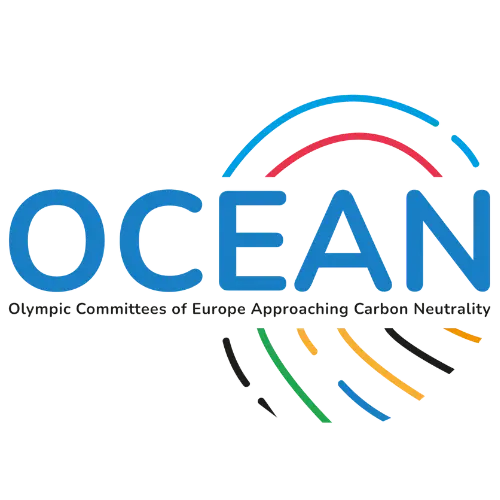




Every sport organisations should have one staff member dedicated to conducting the reduction process of the organisation’s impact on climate change, the Climate Action Officer.
The Guide for Climate Action Officers offers recommendations to help you drive tangible climate action within your sport organisation, thanks to scientific resources combined with best-practice examples and advice from sport organisations.
You will learn about:






The OCEAN Carbon Footprint Measurement Tool is tailor-made by and for sport organisations, available online and free of use.
The tool allows NOCs, international/continental/national federations and sport organisations of all kinds to calculate the carbon footprint of its daily operations and events.
Following the measurement, you can visualise your organisation’s baseline and identify areas for improvement to set targeted reduction goals.

In the framework of the OCEAN project, 18 National Olympic Committees (NOCs) have measured their carbon footprint in 2022 with the support of Öko-Institut, to test the OCEAN Carbon Footprint Measurement Tool and ensure its practicability for sport organisations.
Discover the Analysis of the NOCs' carbon footprint for the baseline year 2022.

The measurement of your sport organisation’s carbon footprint is only the beginning of the process. After understanding your organisation’s impact and getting inspiration from other organisations, the next step is to adopt your own reduction strategy.
Measuring your organisation's footprint only has an impact if followed by the development of a reduction strategy. The 18 National Olympic Committees (NOCs) of the OCEAN Project have adopted tailored Carbon Footprint Reduction Strategies, with the support of the International Olympic Committee (IOC).
Get inspired by the 18 Carbon Footprint Reduction Strategies to develop your own.



















The Pool of Actions is an extensive list of 100+ measures and good practices examples to reduce your organisation’s carbon footprint. Draw inspiration from these measures and include them in your carbon footprint reduction strategy.
Carrying out an energy check.
Purchase of energy-efficient appliances
Possible impact: Medium
Incentives for spectators to use public transport
Accessibility of the event venue
Use rented material or systems e.g. for exhibition stands or IT systems
Reduced use of packaging
Reduction of business trips (online meetings)
Use of environmentally-friendly mobility means
High share of vegetarian /vegan options in meals
Smaller quantities of food to avoid food waste

The OCEAN project aims to empower sport organisations to acquire knowledge to measure their carbon footprint and define reduction strategies and strengthen good governance in the field of climate action.
The OCEAN project runs from January 2023 to July 2025 - under the guidance of the EOC EU Office. OCEAN gathers a consortium involving 18 European NOCs, the International Olympic Committee (IOC), the Association of National Olympic Committees (ANOC), and the Öko-Institut.
The OCEAN project is a Cooperation Partnership co-financed by the European Commission through the Erasmus+ Programme.